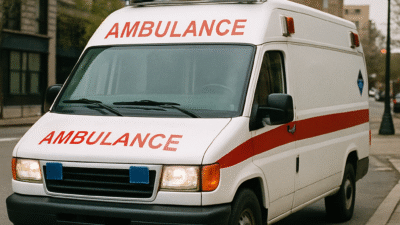Facing minor injuries while working at home or when kids are playing is quite common. Small cuts, bumps, or scrapes may seem small issues, delay in treatment can make them painful and severe. That’s why having an emergency medical kit at home is very important. It helps you deal with these small accidents quickly and safely without panic.
A home medical kit is a box or bag that holds basic supplies to treat minor health problems. It usually includes items like bandages, antiseptic cream, painkillers, and other useful things. Having this bag at home helps you handle small cuts, burns, or sudden aches without delay. However, make sure that it has all the necessary tools or equipment to avoid unnecessary stress during an emergency.
A Home Medical Kit Essentials
1. Mouthwash for Oral Care
Your medical kit should include a good mouthwash. It is helpful if someone has mouth ulcers, gum problems, or a sore throat. One of the most effective and highly recommended products to keep is Enziclor mouthwash. It helps clean the mouth and keeps it fresh. If someone in the house has had dental work or is feeling discomfort in their mouth, this mouthwash can be used to clean the area and avoid infection. The best thing is that it is easy to use and safe for regular care.
2. Bandages for Cuts
Cuts and small wounds are common, especially with children. Bandages are useful to stop bleeding and keep the wound clean. They also protect the skin from dirt, which may cause infection. Therefore, it is necessary to keep different sizes of bandages in your kit, so you are ready for any small injury.
3. Antiseptic Solution
When you clean a cut or scrape, it is good to use an antiseptic solution. This helps kill any germs and keeps the area clean. Use it with cotton or gauze and clean the skin before putting on a bandage. It helps the skin heal faster and avoids problems later.
4. Thermometer
A thermometer helps you check body temperature. This is very helpful when someone feels hot or cold and you are not sure if they have a fever. A digital thermometer is easy to use and gives quick results. However, make sure to always keep clean after each use.
5. Cream for Skin Irritation
Sometimes, you can also experience insect bites, rashes, or itchy skin, especially when working in the kitchen or garden. So, a medicated cream made for these issues should be in your kit. It gives instant relief and reduces redness or swelling. Some creams also help with minor burns or dry skin. Always keep it in a cool, dry place so it stays effective.
6. Tweezers
Tweezers help you remove small things stuck in the skin, like splinters or glass pieces. Moreover, you can also use them to remove ticks or other small insects. They are sharp, so you must use them with care and make sure they are clean before and after using.
7. Cotton and Gauze
Cotton balls and gauze pads are needed when you clean wounds. They help soak blood or clean skin before applying cream or bandages. Gauze pads can also cover bigger wounds and stop bleeding. So, never forget to keep these items in your medical kit. Always packed them in clean wrapping and kept them dry.
8. Medical Tape
Medical tape is used to keep gauze or bandages in place. It should not be too sticky, but strong enough to hold. It is also helpful if you need to support a small finger or toe injury. The best thing is that it is too easy to cut and use. You can simply tear it by hand, eliminating the need for scissors or any other tool.
9. Tablets for Pain Relief
Headaches, body pain, or toothaches can come suddenly and spoil your plans. When this happens, having a painkiller tablet in the kit can give quick relief. It is helpful for both adults and older children, but you should always follow the dose written on the pack. These tablets are often used when someone cannot rest because of pain, or before visiting a doctor for further care.
10. Emergency Contact Sheet
Lastly, your kit should have a small paper with the phone numbers of nearby hospitals or clinics. Moreover, you can also write down any family health conditions or allergies and recommend a tablet or treatment for it. It will help you and others to act fast and give proper care during an emergency.
In a Nutshell
To sum it up, a home medical kit should have everything you may need during an emergency. By considering these ten things, you can create a well-stocked kit that helps you deal with most small health problems and minor injuries at home and saves time and stress. However, make sure to check your items every few months to ensure everything is available and in the right condition and keep your kit in a place where everyone can find it easily.

